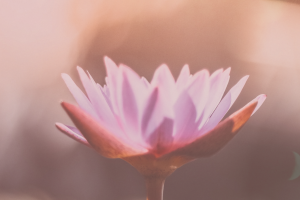Frequently Asked Questions
What is Yoga?
Yoga is an ancient practice that originated in India over 5000 years ago that involves breathing techniques, meditation, movement, and other elements to promote physical, mental, and energetic health and well-being. Yoga comes from the Sanskrit word “yuj” which translates to “yolk” or “union.” In the practice of Yoga, we learn that there is no separation, as we practice the conscious connection of the mind, body, and spirit. It is often said that we don’t practice Yoga to get better at Yoga – we practice Yoga to get better at living.
Why Yoga?
There are MANY known benefits of a Yoga practice. Whether you try a class once, or practice every day, Yoga can positively impact your life. Some of the known benefits of Yoga include increased flexibility, strength, lung capacity, focus, calm, and equanimity, as well as the improvement of symptoms of a host of chronic diseases. Yoga also supports heart health, relieves back pain, improves ability to relax and sleep, and can be a valuable tool as a part of treatment for stress, anxiety, depression, chronic pain, and addiction. A regular Yoga practice can enhance overall well being and quality of life.
Do I Need to Be Flexible to Practice Yoga?
You do NOT need to be flexible to practice yoga! Yoga accepts you exactly as you are and Arielle is trained to guide students of all levels and abilities through a Yoga practice. There are many poses and options available and it is normal to change what your practice looks like from day to day. The practice is here for you, after all. That being said, you should always consult with a medical professional before starting a Yoga practice or any other movement.
What if I Don’t Want to Take a Pose That is Cued?
You don’t have to do anything you don’t want to do. All poses cued are suggested and everything is optional. Your Yoga teachers can guide you, inspire you, support you, and help keep you safe, but no one knows your body and how you feel but you. You should always feel empowered to listen to your body and modify or skip poses. You may even choose to just sit down, lay down, or rest in child’s pose, as you breathe and relax. As long as you are present in the moment and mindfully breathing, you are practicing Yoga!
How Should I Prepare for a Yoga Class?
You should bring water to class and be sure to hydrate throughout the day and every day! It is recommend that you arrive a few minutes early, to give yourself time to settle in. Other than that, just show up with an open mind and an open heart. Remember, Yoga is a practice – NOT a performance or a competition. When you come to your mat, you are encouraged and expected to move mindfully from a place of purpose, to rest when you need to, and above all else, to use this as an opportunity to feel good and serve yourself.
What Should I wear?
You should dress comfortably so that you can breathe and move with ease. For Vinyasa Yoga classes, you may choose to wear athletic, sweat-wicking clothing. Depending on the weather that evening, you may also bring layers for comfort and warmth. Yoga is traditionally performed barefoot, so you can wear sandals or other footwear that is easy to remove.
What Should I Bring?
Other than water, you really don’t need to bring anything but yourself! That being said, using props in a Yoga practice can help make it more accessible and enjoyable. Below are some helpful props you can use in a Yoga class.
Yoga Mat: A Yoga mat is preferable, but you can always use a towel or blanket if you need to. There are many brands and types of Yoga mats, and which one to use is a personal preference. Some options include Gaiam (they make several lightweight, reasonably priced Yoga mats), Manduka Pro, and Manduka ProLite (these are more of an investment, but also work great for hot Yoga). You can find yoga mats at many local and online retailers.
Yoga Blocks: Blocks are a great tool to incorporate into your Yoga practice and there are many reasons and ways to use blocks. Cork blocks are sturdier and more supportive. Foam blocks are light/portable and generally less expensive. You can find blocks at many local and online retailers.
Yoga Strap: You can find a Yoga strap at many local and online retailers, or just use a belt or hand towel.
Yoga Bolster: For Yin Yoga, it is a great idea to bring a Yoga bolster, and they come in many brands, shapes and sizes. You can also use a standard or large pillow just as well. You can find Yoga bolsters at many local and online retailers.
Towels/Blankets/Layers: You can bring any extra towels, blankets, clothing layers, and hand towels you need for comfort and warmth.
Do I Need to Fill Out Any Paperwork?
All Yoga students must sign the required waiver before participating in Yoga classes or services with Yogi Arielle. You can find the waiver by clicking here.
I Have More Questions…
If you have any other questions, you can email YogiArielle@gmail.com.
“The success of Yoga does not lie in the ability to perform postures, but in how it positively changes the way we live our life and our relationships.” — T.K.V. Desikachar


